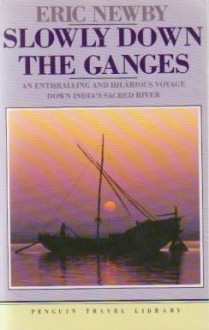
„TukTuk Cinema” jest drugą książką Roberta Maciąga, którą przeczytałem i niniejszym oświadczam, że zostaję jego fanem. Nie (tylko) dlatego, że jest zapalonym rowerzystą (jak ja). Nie (tylko) dlatego, że kocha Indie (jak ja). Nie (tylko) dlatego, że raz po raz jeździ do Indii (jak ja). Ale głównie dlatego, że z jego tekstów wyziera głębokie zrozumienie dla ludzi, których spotyka na swojej drodze. Tak też jest w „TukTuk Cinema”.

Delhi, listopad 2017 r.
Książka to relacja z trasy przez północne Indie. Podróży, która odbyła się trochę inaczej, niż poprzednie wyjazdy autora książki. Tym razem udało się połączyć nie tylko frajdę z podróżowania, ale i frajdę dawania radości innym. Czytając książkę, ja także z radością zatapiałem się w jej atmosferę. Oto z jednej strony mamy karkołomną wyprawę miejskim skuterem wzdłuż Gangesu, przez ponad tysiąc kilometrów dróg północnych Indii. Kto raz stanął w obliczu miejskiego lub wiejskiego żywiołu indyjskiego ruchu drogowego, ten wie, jak duże jest to wyzwanie. Szczególnie dla kogoś, kto w Indiach bywał raczej pasażerem niż kierowcą. Z drugiej strony, cały przejazd napędza nie tylko leciwy silnik Hondy Activii, ale pomysł by pokazać indyjskim dzieciom filmy z Bolkiem i Lolkiem oraz Reksiem. Jako, że na takich właśnie dobranockach się wychowałem, cel drugi wyjazdu również trafił do mego serca.

Ciężarówka przy warsztacie na skrzyżowaniu dwupasmówki (stan Hariana, listopad 2016 r.)
„— Sure. What do you have? „Hindustan Times”?
— No, English piper, sir.
Dobra, z gazety nici. Poczytam coś na Kindle’u. Ale nie, Kindle został przecież w samolocie. W tej kieszonce, w której są katalogi, instrukcja obsługi katastrofy i torebka na rzyganie. Dobra, to niczego nie poczytam. Popatrzę sobie na ulicę. Może akurat będzie przechodził ktoś z samosą albo zjawi się jakiś ćajwala."
Robb Maciąg „TukTuk Cinema”

Paan, uliczny przysmak kierowców... (Gurgaon, listopad 2017 r.)
Autorowi znakomicie udało się oddać zarówno codzienną troskę o przeżycie na drodze jak i zmagania z przeciwnościami losu, który stawiał przed nim indyjskich urzędników. Z takich zmagań z niewzruszoną logiką nieprzewidywalności rodzi się pasja radzenia sobie z przeszkodami. Jeszcze lepiej Robb Maciąg pokazał piękno ludzkiej, często bezinteresownej dobroci, której Indie są również pełne. Z takich mniejszych i większych spotkań, słów, gestów i czynów, jakie opisuje autor w swej relacji, rodzi się miłość do Indii.

Ruch uliczny w zaułkach Delhi (Old Delhi, listopad 2017 r.)
Książkę zacząłem czytać w czasie ostatniego pobytu w Indiach, kontynuowałem w samolocie, a kończyłem już w kraju. Nie mogłem się oderwać od lektury, chyba tylko na chwilę, żeby mi obeschły łzy wzruszenia stające w oczach. Straciłem przez to możliwość dokończenia wcześniej rozpoczętej, innej książki, która była udostępniona w akcji CzytajPL (nie zdążyłem już jej przeczytać, bo akcja się zakończyła). Ale nie żałuję!
Serdecznie polecam „TukTuk Cinema” wszystkim, którzy chcą poznać Indie, znają Indie lub po prostu lubią zatopić się w dobrze opowiedzianej historii.
P.S.
Książkę można kupić w księgarni Ebookpoint: Robert „Robb” Maciąg „TukTukCinema. Czyli rzecz o Indiach, Gangesie, radości życia, wiecznie psującym się skuterze i Bolku i Lolku”.

 Log in with Facebook
Log in with Facebook 









